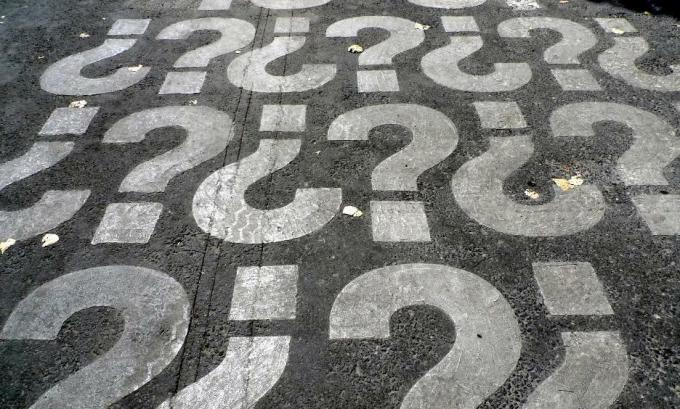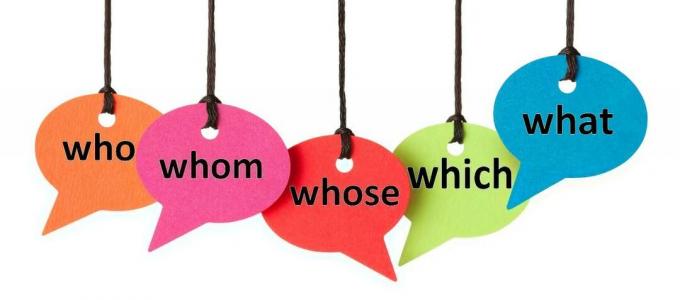Interrogative Sentences: Definition, Characteristics, Types and Examples
X
Advertisements
Loading...
In Indonesian, this interrogative sentence is a direct question sentence that uses a question mark at the end of the sentence.
Which, this sentence is one of the four basic types of sentence types that are often used in oral or written daily life.
Now, In the following, we will discuss in more detail the questions that you need to know, read carefully.
list of contents
Understanding Interrogative Sentences

Advertisement
1. In general
An interrogative sentence is a sentence whose contents are in the form of a question with the aim of obtaining information.
Not only that, this sentence is also often defined as a sentence used to ask a question in a negotiation text.
2. According to experts
The following are some meanings of interrogative sentences spoken by experts, including:
a. Big Indonesian Dictionary (KBBI)
Interrogative means containing or indicating a question.
Based on its meaning, we can conclude that an interrogative sentence is a form of sentence that contains and indicates a question.
b. R. Kunjana Rahardi in the book Pragmatics (2005:78)
Advertisement
An interrogative sentence is a sentence which contains the intention to ask something to the speech partner.
In other words, if a speaker intends to find out the answer to a thing, situation, then the speaker will speak using interrogative sentences to the speech partner.
c. Indonesian Language Self-Expression and Academic for SMA/MAK Class X (2014:43) by Maryanto
Interrogative sentences can be divided into interrogative sentences that require a "yes" or "no" answer and interrogative sentences that require an answer in the form of information.
d R. Kunjana Rahardi in the book Pragmatics (2005:79)
Answers “no”, “yes”, “already”, “no”, and “no” are referred to as total interrogative. Meanwhile, those who demand answers in the form of information are referred to as partial interrogative.
Characteristics of Interrogative Sentences

To distinguish interrogative sentences from other types of sentences, this one sentence has several special characteristics, such as:
- In it there are question words (5W + 1H or commonly known as what, when, where, why, who, and how).
- If it does not contain the word, then use the suffix -kah.
- Have a question mark at the end of the sentence.
- Use a questioning intonation.
- Need an answer.
Types of Interrogative Sentences

The following are some types of interrogative sentences that you need to know, including:
1. Information Questions
That is a sentence that will require information that is short, clear, and also simple.
2. Questions Yes or No
Where this question sentence clearly requires a yes or no answer.
3. Positive Interrogative Sentences
Advertisement
It is an interrogative sentence that is asking something in a positive tone.
4. Negative Interrogative Sentence
Is an interrogative sentence that contains the word no or not, where this sentence is to confirm.
5. Rhetoric Interrogative Sentences
Is a question sentence that does not require an answer because the questioner already knows the answer.
Quoted from Literary Devices, this rhetorical question sentence is usually asked only to give effect emphasis, attract attention, and if the person being asked does not answer the previous question clear.
6. Open Interrogative Sentence
Is a sentence that requires a long, detailed answer, and is not limited to one particular thing.
In open-ended questions, generally different views, assumptions, or information are obtained for each person.
Advertisement
Examples of Interrogative Sentences

To make it easier for you to understand the description above, here we present some examples of interrogative sentences that you can learn, including:
1. Examples of Total Interrogative Sentences
- Do you understand your mistake?
- Do you recognize the teacher?
- Can you confirm the alleged misconduct?
2. Examples of Partial Interrogative Sentences
- Who rejects or accepts the accusations?
- Why do you just hand over your vehicle or vehicle registration to the officers?
- Who completes the application for Russian foreign aid?
3. Information Questions
- Who is sick?
- Where were you at 8 o'clock last Sunday?
- What do you buy at Alfamart?
4. Questions Yes or No
- You said you weren't feeling well?
- Did you hit the victim?
- May I come with you?
5. Positive Interrogative Sentence
- Do you know anything about yesterday's robbery?
- What's your favorite movie?
- Who is your favorite artist?
6. Negative Interrogative Sentence
- Can't you come?
- Didn't you go to mom's house at that time?
- Don't you two talk to each other?
- Don't you want to eat or drink first?
7. Rhetoric Interrogative Sentences
- Can't you hear me?
- Isn't it hot today?
- Are you stupid?
- Who doesn't want to be healthy?
8. Open Interrogative Sentence
- What do you think about the policy that just came out yesterday?
- Which part of the song did you like?
- Why are you sad?
